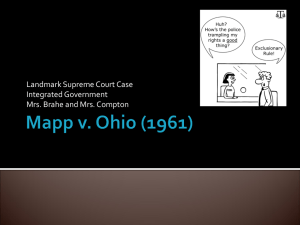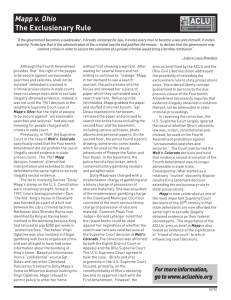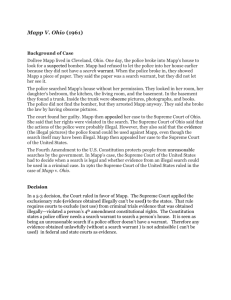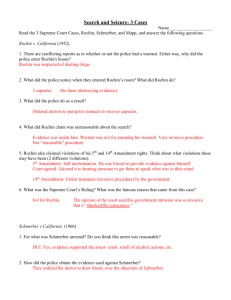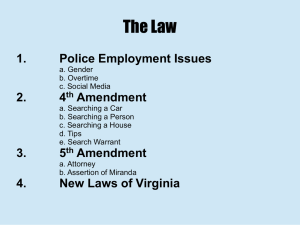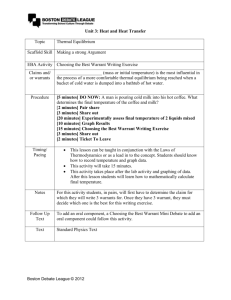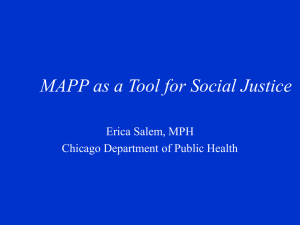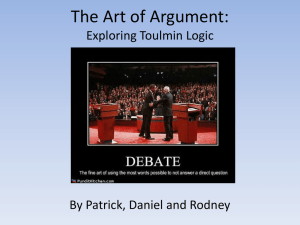Mapp v Ohio – Jordan T and Cassie R
advertisement
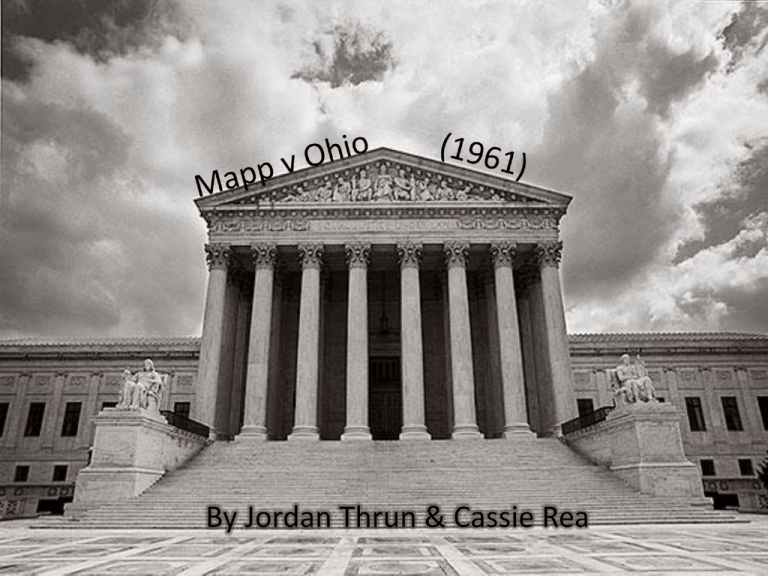
Historical Background Dollree Mapp was under suspicion for possibly hiding a person suspected in a bombing. Mapp refused to let the police in her home because they did not obtain a warrant. After a few hours, the police forced their way into Mapp's house, holding up a piece of paper when Mapp demanded to see their search warrant. The police found no evidence of anyone hiding but did come across pornographic materials! Mapp was arrested and charged with violating an Ohio law against the possession of obscene materials. The jury found Mapp guilty and she was sentenced to jail. The case was brought to the attention of the supreme court after loosing her appeal in the Ohio Supreme Court. The Court determined that evidence obtained through a search that violates the Fourth Amendment is inadmissible in state courts Comic Background To better understand: We made our own cartoon. 1 2 3 Dollree Mapp’s House in Cleveland Ohio [The music you hear is for dramatic purposes only. It was not actually playing during this scenario.] Ma’am, there is a report of a person tied to a bombing hiding in your house! Can we come in a take a look? NO! You can not come into my home without no warrant! 3 Hours Later… Ma’am Please Open The Door! MoVe In!!! Not a Warrant Not a Warrant Not a Warrant Not a Warrant Not a Warrant Not a Warrant Not a Warrant Not a Warrant Not a Warrant Not a Warrant I need to see a warrant! Not a Warrant I have it right here! Hey I found bad things in this chest! Mrs. Mapp you are under arrest for the possession of obscene material and resisting arrest! Legal Question Were the confiscated materials protected by the First Amendment? May evidence obtained through a search in violation of the Fourth Amendment be admitted in a state criminal proceeding? The Decision Concurring Opinion: “when the Fourth Amendment's ban against unreasonable searches and seizures is considered together with the Fifth Amendment's ban against compelled self-incrimination, a constitutional basis emerges which not only justifies but actually requires the exclusionary rule.” - Justice Black Dissenting Opinion: “The new and pivotal issue brought to the Court by this appeal is whether §2905.34 of the Ohio Revised Code making criminal the mere knowing possession or control of obscene material, and under which appellant has been convicted, is consistent with the rights of free thought and expression assured against state action by the Fourteenth Amendment.” - Justice Harlan Stated that anything admitted without having a warrant served is inadmissible. ["Exclusion rule" was set in place] In a 5-3 decision, the Court ruled in favor of Mapp! The Precedent The officers violated the 14th amendment by searching Dollree Mapp’s home without a warrant and presenting illegally obtained evidence to the court. By doing this they also went against previous court rulings. This affects cases in the future by making it necessary for warrants to be presented when obtaining evidence for court cases. Public Support For: Interest groups would support the decision of the Supreme Court because the evidence was obtained without a warrant. This is considered to be illegal. Against: Interest groups would be against the decision of the Supreme Court, because no matter how the materials were obtained they were still in the possession of Dollree Mapp and they were still illegal. Judgment and Justification If I was on the Supreme Court at the time of Mapp V. Ohio I would have been in favor of how the court ruled because of when the materials were obtained by the police there was no search warrant. This is illegal because in the 14th amendment of the United States constitution it states that every citizen is protected from “unreasonable search and seizures”.
